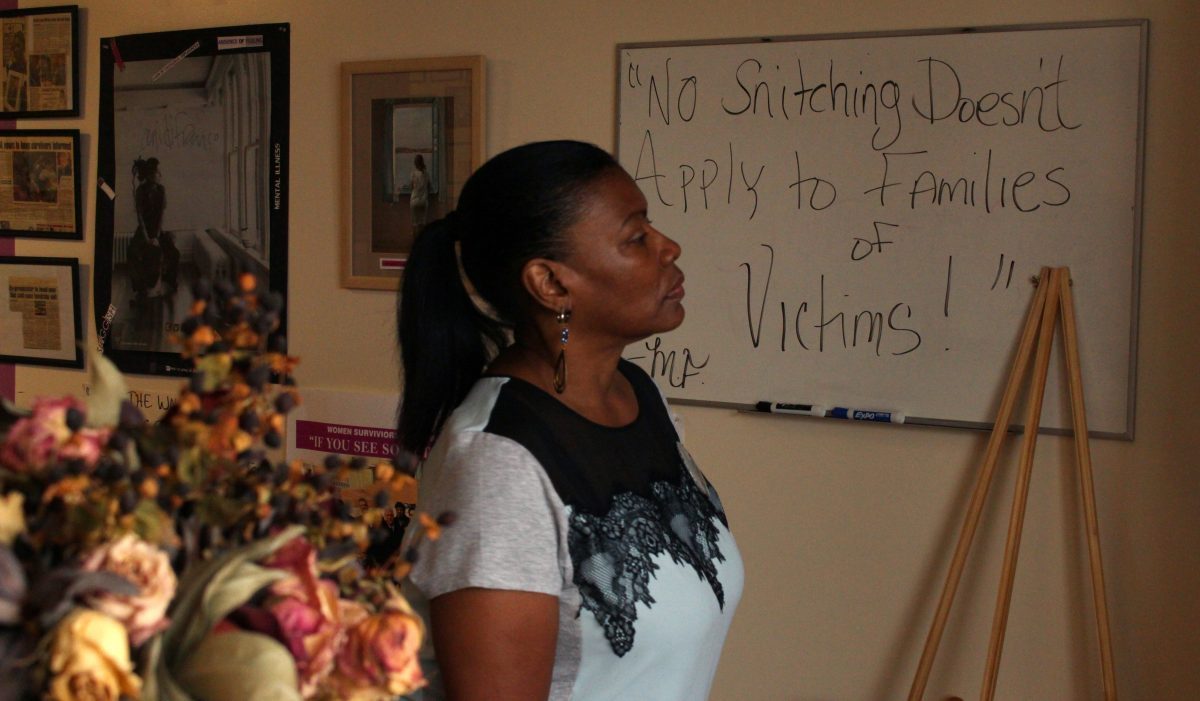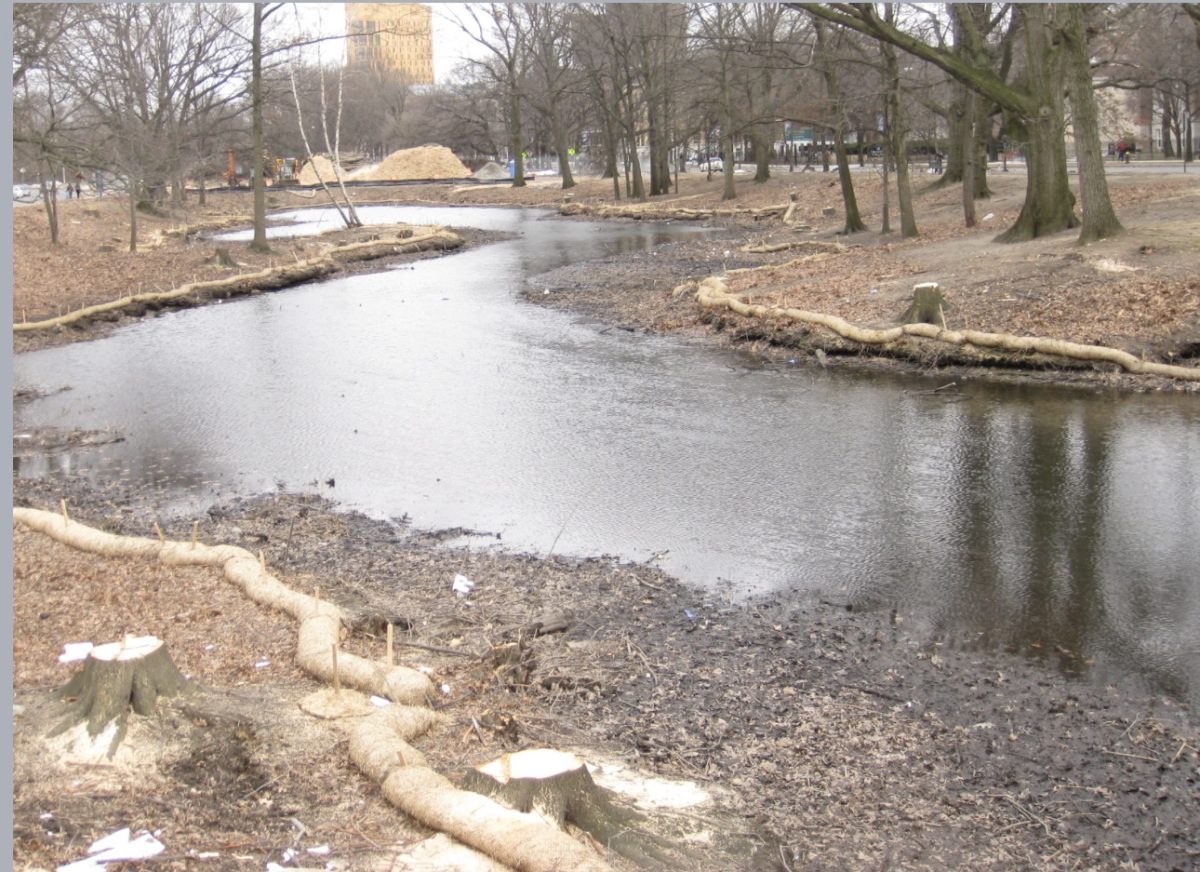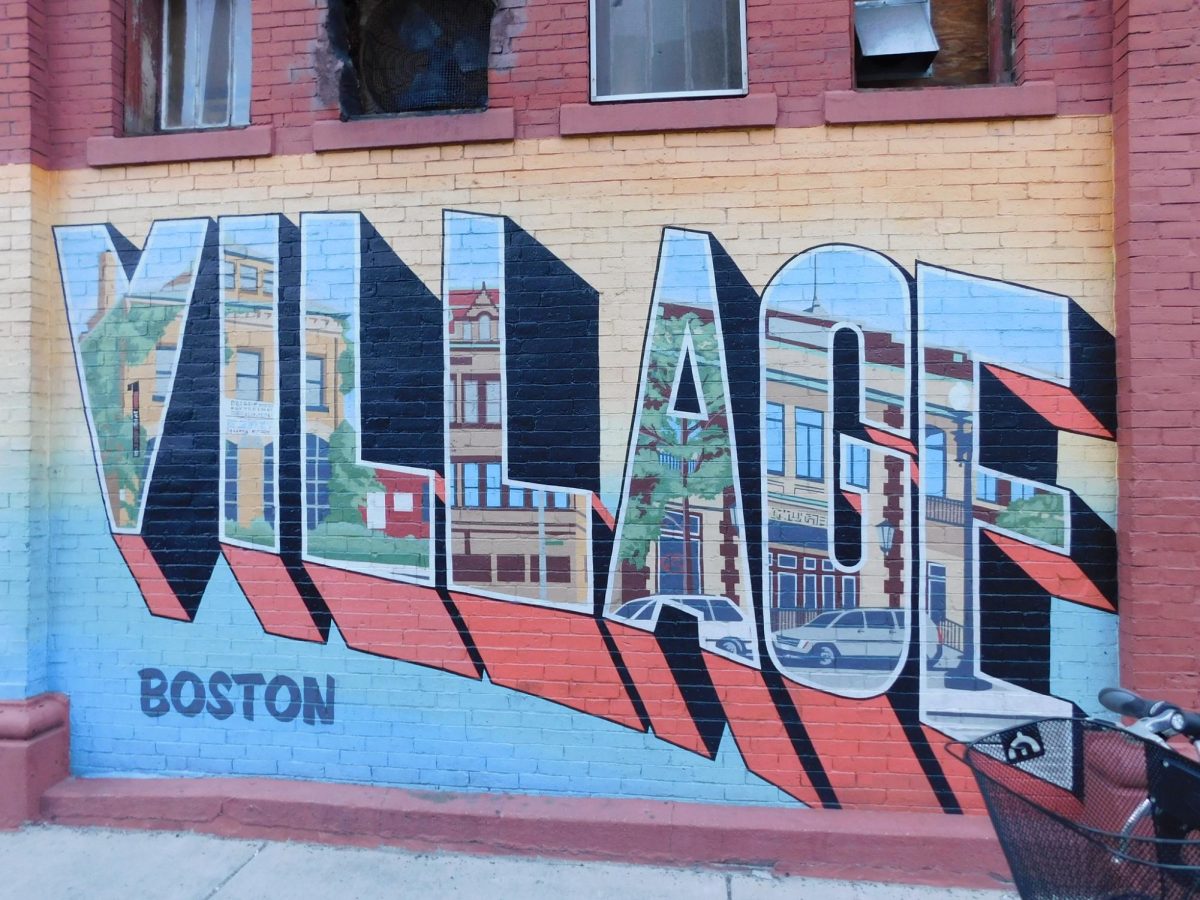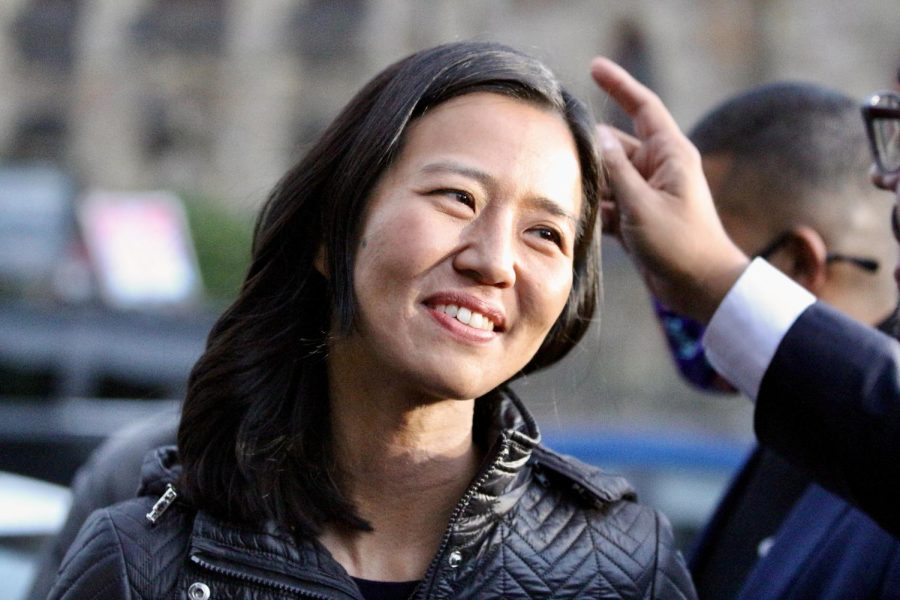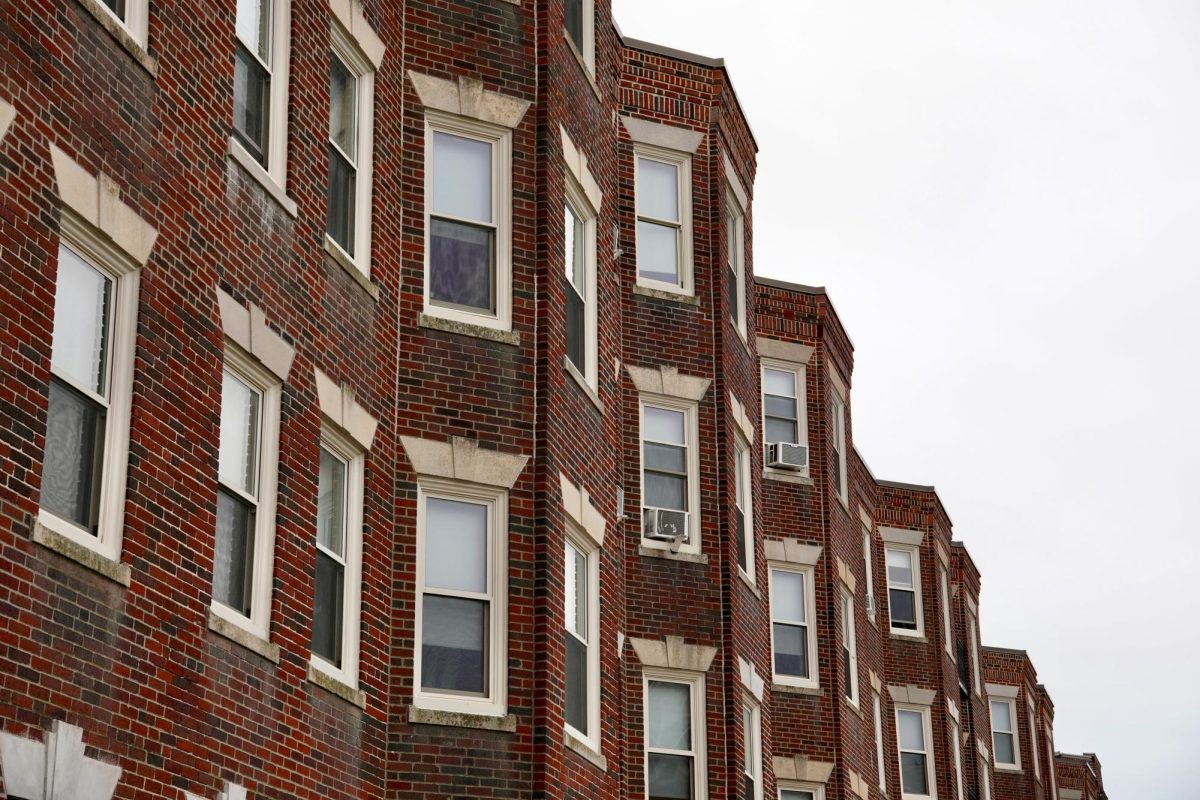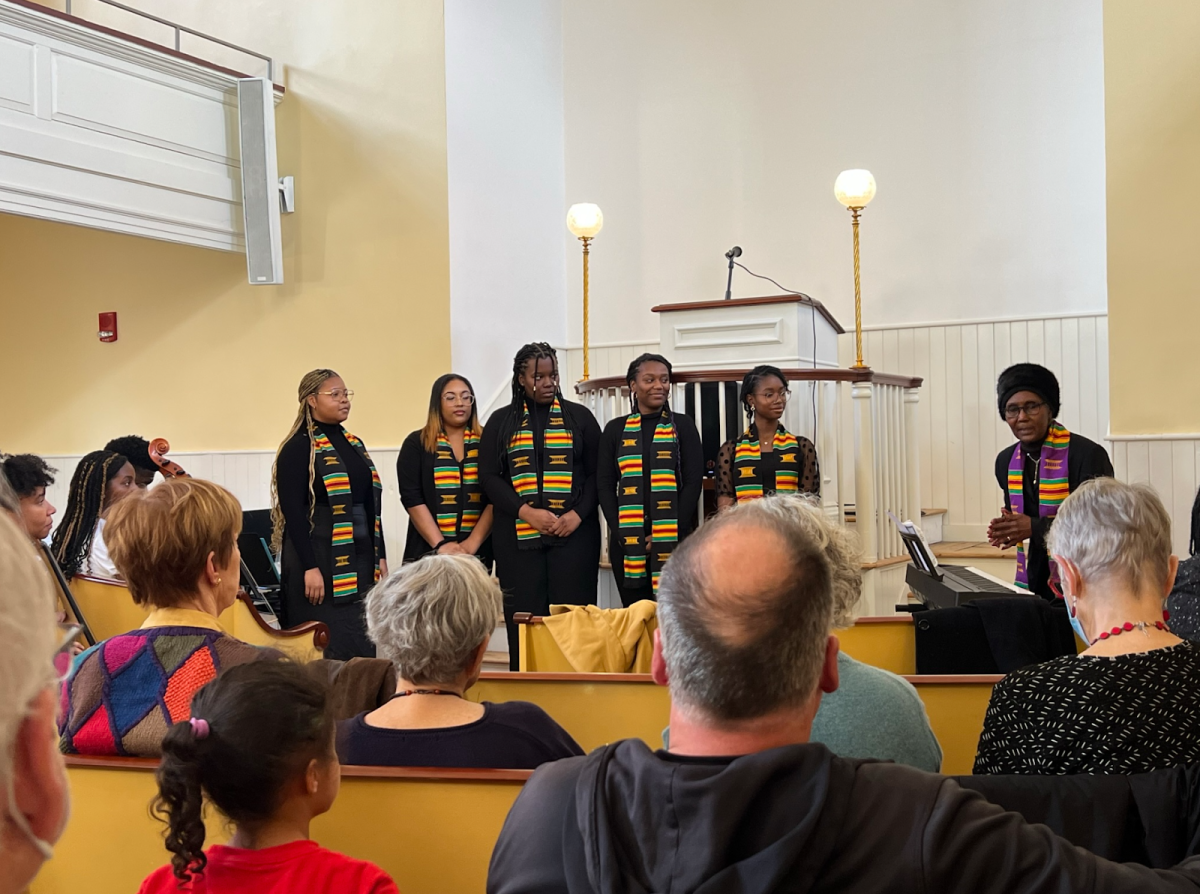By Zach Ben-Amots
“On Oct. 15, 1996, my husband did something that he never, ever did before. He didn’t drive his car to work,” Mary Franklin recalled about the day her husband, Melvin, was murdered.
That day, Mary dropped him off at the T stop nearest their home in Dorchester. She remembered watching her husband walk away until she couldn’t see him anymore.
“He called me later on that night, saying he was going to be working late. The next time I saw him, he was at Boston Medical Center with a couple of gunshot wounds. And he was lying on a hospital bed with his eyes open and a dry tear coming out of his right eye. He was dead.”
From what Mary knows about the murder, Melvin was nearing the end of his commute – only a few blocks from home – when he witnessed a man being assaulted. After stopping to help, Melvin was shot and killed. About an hour later, Mary received a phone call from a nurse at Boston City Hospital — now Boston Medical Center — where Melvin had been admitted.
“I wake the kids up, I pack them in the car, and I drive by a crime scene. Didn’t even know it was my husband’s,” Mary said in a recent interview. “When I went to see Melvin for the first time — his body. I will never, ever forget. Never.”
As detectives ran out of leads to pursue, they classified Melvin’s murder as a cold case. By 2013, nearly 20 years after her husband was killed in a still unsolved murder, the police had stopped communicating with Mary Franklin and would not provide updates on the case. Her frustration boiled over, and she decided to take drastic action.
“I am the woman who lived in the lobby of [Boston] police headquarters for 26 days. I slept on a cement slab. People were coming in and out. It was just a public area. And I did it to make a statement. I did it to say, ‘You have to open the door.’”
In total, Franklin spent 26 days living in the lobby of Boston Police Department (BPD) headquarters. Her protest received widespread coverage throughout the city.
Later that year, Franklin founded Women Survivors of Homicide Movement to advocate for victims of unsolved homicides and their families. According to Franklin, Women Survivors of Homicide is the only organization in the city of Boston that seriously addresses unsolved murders. Although she currently runs the organization from her living room in Roslindale, Franklin hopes to see her work evolve into a nation-wide movement.

In Boston, Franklin’s activism has paid off. BPD and WSOHM now operate as partners in many capacities. BPD frequently co-sponsors events with WSOHM, and Franklin now has a direct police contact, Deputy Superintendent Marcus Eddings. Four years after her sit-in at police headquarters, Franklin has said her relationship with BPD is a “seven out of ten,” citing the increased trust and open communication between the two parties.
On Oct. 19, 2017, WSOHM held a dialogue at the Shelburne Community Center for survivors of homicide to communicate with the office of Mayor Martin J. Walsh. An unnamed representative of Mayor Walsh attended the event.
When contacted for an interview, Nicole Caravella, a spokeswoman for Mayor Martin J. Walsh, responded with an official statement to The Scope. “The Boston Police Department works hard everyday to stem violence in our city, and is committed to solving all homicides in our neighborhoods to build a safer Boston for all,” the statement read. Caravella stated that police are the only city officials who deal specifically with unsolved homicide, but she highlighted the work of other public offices which have sponsored initiatives for violence prevention and trauma recovery.
Several women at the WSOHM dialogue spoke about their own cases and their experiences with city officials.
Renee Rose’s son, Victor, was killed on Nov. 15, 2005. His death remains unsolved. Rose has spent her professional career working in the Massachusetts juvenile justice system, work that began before losing her son. Both professionally and personally, she wants to see more effort put into unsolved homicide. “After 12 years, you get a little jaded,” Rose said after the dialogue. “And I think that more resources need to go into having these cases resolved.”
Annetta Dingle-Smith also questioned efforts made by BPD to solve her son’s murder and to assist families of victims. Dingle-Smith’s son, Antoine Marquis Dingle-Knight, was shot and killed in Aug. of 2014. “It’s just another black statistic in Roxbury,” Dingle-Smith said. “If it’s Roxbury, Mattapan, or Dorchester, it’s not that serious. But if it’s in Brighton, it’s more serious. Why? We’re all human beings.”
Dingle-Smith also spoke about a unique tension in her own life. “I’m living with this on two ends: I have a son that’s deceased and I have a son that’s incarcerated, convicted of murder. So sometimes, when I go to these [events for survivors of homicide], I still feel like I don’t belong because of the double-edged sword. But I do belong. My son, Antoine, is not gonna die in vain. And my son, Ramone, is not going to go down like that. He’s incarcerated now, but I can’t anticipate him being incarcerated for the rest of his life. He went in at 19.”
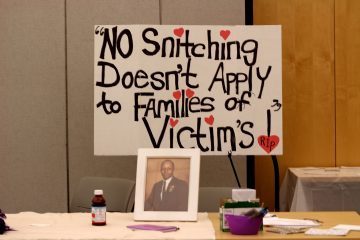
Franklin opened up about the stress of activism so closely related to her own trauma. “The women I work with, myself included, we’ve seen our loved ones in terrible forms,” she said. “Not only have we had those visions. We still hear gunshots. Every month, there’s a shooting. So we’re re-traumatized. Those are triggers, but we have no real services.”
Franklin hopes to eventually move the WSOHM headquarters out of her home, so that she can separate her professional and personal lives. For now, though, she is still seeking consistent support for her business. “We have to do more. I need volunteers,” Franklin said. “Sure, June through Sept., everybody’s up in arms, all the activists are out. Everybody’s marching because there’s a murder here, a murder here… Where are all of those activists now? Know where they are? They’re hibernating until June 2018. It’s a cycle, it’s a vicious cycle.”
Franklin wants to see year-round activism, support and action. Once the entire city engages in constructive dialogue, Franklin has said, community members can focus on the core issue: solving homicides.

